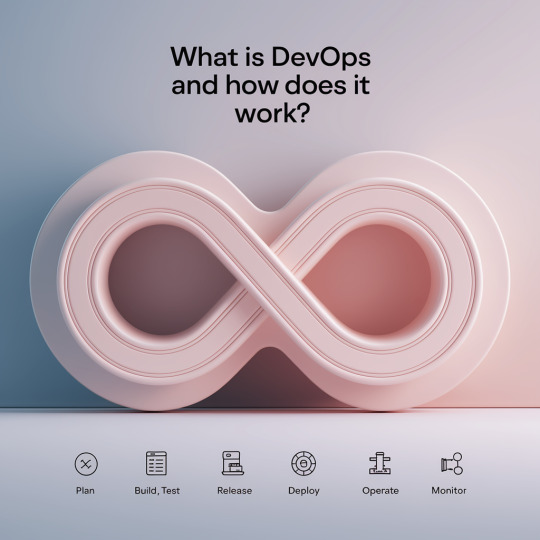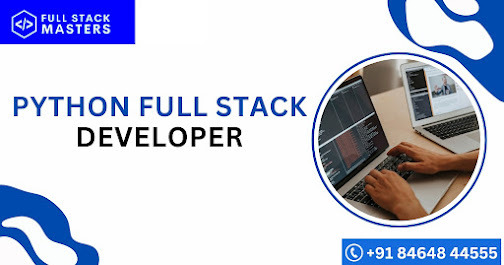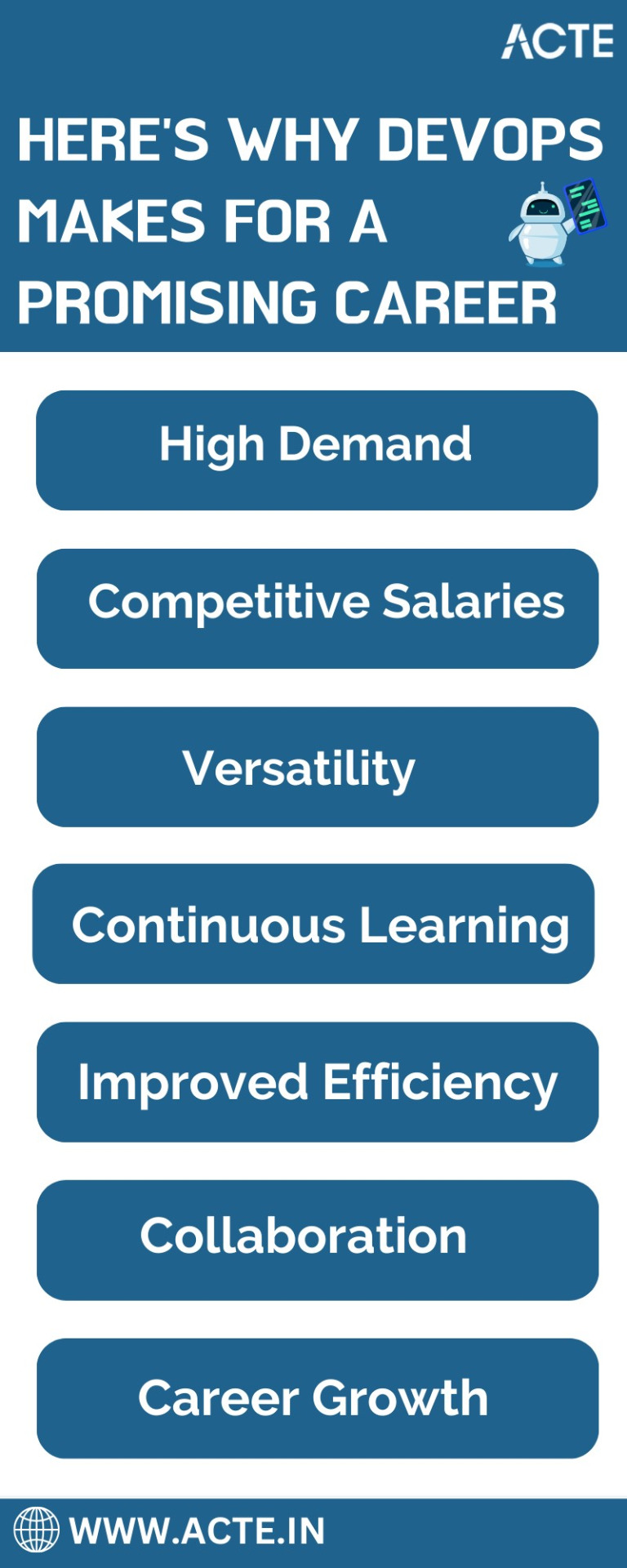#DevOps-Engineer-Salary
Explore tagged Tumblr posts
Text
How Much Does a DevOps Engineer Make? Salary Insights for 2025- OpsNexa!
Explore the average salary of a DevOps engineer in 2025, including factors that influence pay such as location, experience, certifications, and industry. How Much Does a DevOps Engineer Make? Learn what you can expect to earn as a DevOps professional, along with tips for increasing your earning potential.
0 notes
Text

Visit Cloudastra Technology: Cloudastra DevOps as a Services to learn how tailored DevOps solutions can help your business scale faster and smarter.
#what is devops#devops engineer#devops engineer salary#devops tools#devops meaning#devops interview questions#devops engineer jobs#devops certification#devops jobs#devops services#devops consulting services
0 notes
Text
Highest Paying IT Jobs in India in 2025: Roles, Skills & Salary Insights
Published by Prism HRC – Best IT Job Consulting Company in Mumbai
India's IT sector is booming in 2025, driven by digital transformation, the surge in AI and automation, and global demand for tech talent. Whether you're a fresher or a seasoned professional, knowing which roles pay the highest can help you strategize your career growth effectively.
This blog explores the highest-paying IT jobs in India in 2025, the skills required, average salary packages, and where to look for these opportunities.

Why IT Jobs Still Dominate in 2025
India continues to be a global IT hub, and with advancements in cloud computing, AI, cybersecurity, and data analytics, the demand for skilled professionals is soaring. The rise of remote work, startup ecosystems, and global freelancing platforms also contributes to higher paychecks.
1. AI/ML Engineer
Average Salary: ₹20–40 LPA
Skills Required:
Python, R, TensorFlow, PyTorch
Deep learning, NLP, computer vision
Strong statistics and linear algebra foundation
Why It Pays Well:
Companies are pouring investments into AI-powered solutions. From chatbots to autonomous vehicles and predictive analytics, AI specialists are indispensable.
2. Data Scientist
Average Salary: ₹15–35 LPA
Skills Required:
Python, R, SQL, Hadoop, Spark
Data visualization, predictive modelling
Statistical analysis and ML algorithms
Why It Pays Well:
Data drives business decisions, and those who can extract actionable insights are highly valued. Data scientists are among the most sought-after professionals globally.
3. Cybersecurity Architect
Average Salary: ₹18–32 LPA
Skills Required:
Network security, firewalls, encryption
Risk assessment, threat modelling
Certifications: CISSP, CISM, CEH
Why It Pays Well:
With rising cyber threats, data protection and infrastructure security are mission critical. Cybersecurity pros are no longer optional—they're essential.
4. Cloud Solutions Architect
Average Salary: ₹17–30 LPA
Skills Required:
AWS, Microsoft Azure, Google Cloud
Cloud infrastructure design, CI/CD pipelines
DevOps, Kubernetes, Docker
Why It Pays Well:
Cloud is the backbone of modern tech stacks. Enterprises migrating to the cloud need architects who can make that transition smooth and scalable.
5. Blockchain Developer
Average Salary: ₹14–28 LPA
Skills Required:
Solidity, Ethereum, Hyperledger
Cryptography, smart contracts
Decentralized app (dApp) development
Why It Pays Well:
Beyond crypto, blockchain has real-world applications in supply chain, healthcare, and fintech. With a limited talent pool, high salaries are inevitable.
6. Full Stack Developer
Average Salary: ₹12–25 LPA
Skills Required:
Front-end: React, Angular, HTML/CSS
Back-end: Node.js, Django, MongoDB
DevOps basics and API design
Why It Pays Well:
Full-stack developers are versatile. Startups and large companies love professionals who can handle both client and server-side tasks.
7. DevOps Engineer
Average Salary: ₹12–24 LPA
Skills Required:
Jenkins, Docker, Kubernetes
CI/CD pipelines, GitHub Actions
Scripting languages (Bash, Python)
Why It Pays Well:
DevOps reduces time-to-market and improves reliability. Skilled engineers help streamline operations and bring agility to development.
8. Data Analyst (with advanced skillset)
Average Salary: ₹10–20 LPA
Skills Required:
SQL, Excel, Tableau, Power BI
Python/R for automation and machine learning
Business acumen and stakeholder communication
Why It Pays Well:
When paired with business thinking, data analysts become decision-makers, not just number crunchers. This hybrid skillset is in high demand.

9. Product Manager (Tech)
Average Salary: ₹18–35 LPA
Skills Required:
Agile/Scrum methodologies
Product lifecycle management
Technical understanding of software development
Why It Pays Well:
Tech product managers bridge the gap between engineering and business. If you have tech roots and leadership skills, this is your golden ticket.
Where are these jobs hiring?
Major IT hubs in India, such as Bengaluru, Hyderabad, Pune, Mumbai, and NCR, remain the hotspots. Global firms and unicorn startups offer competitive packages.
Want to Land These Jobs?
Partner with leading IT job consulting platforms like Prism HRC, recognized among the best IT job recruitment agencies in Mumbai that match skilled candidates with high-growth companies.
How to Prepare for These Roles
Upskill Continuously: Leverage platforms like Coursera, Udemy, and DataCamp
Build a Portfolio: Showcase your projects on GitHub or a personal website
Certifications: AWS, Google Cloud, Microsoft, Cisco, and niche-specific credentials
Network Actively: Use LinkedIn, attend webinars, and engage in industry communities
Before you know
2025 is shaping up to be a landmark year for tech careers in India. Whether you’re pivoting into IT or climbing the ladder, focus on roles that combine innovation, automation, and business value. With the right guidance and skillset, you can land a top-paying job that aligns with your goals.
Prism HRC can help you navigate this journey—connecting top IT talent with leading companies in India and beyond.
- Based in Gorai-2, Borivali West, Mumbai - www.prismhrc.com - Instagram: @jobssimplified - LinkedIn: Prism HRC
#Highest Paying IT Jobs#IT Jobs in India 2025#Tech Careers 2025#Top IT Roles India#AI Engineer#Data Scientist#Cybersecurity Architect#Cloud Solutions Architect#Blockchain Developer#Full Stack Developer#DevOps Engineer#Data Analyst#IT Salaries 2025#Digital Transformation#Career Growth IT#Tech Industry India#Prism HRC#IT Recruitment Mumbai#IT Job Consulting India
0 notes
Text
Discover the average DevOps engineer salary in India and what factors influence pay. Explore your earning potential today.
0 notes
Text
Top 6 Remote High Paying Jobs in IT You Can Do From Home
Technology has changed the scenario of workplaces and brought new opportunities for IT professionals erasing previous boundaries. Today, people are searching for both flexibility and, of course, better pay, which has made many look for remote well-paid jobs, especially in information technology field.
Advancements in technology have made remote work a reality for a growing number of IT specialists. Here, we will look into six specific remote high-paying IT jobs you can pursue from the comfort of your home:
Software Developer
Software developers are the architects of the digital world, designing, developing, and maintaining the software applications that power our lives. They work closely with clients, project managers, and other team members to translate concepts into functional and efficient software solutions.
In demand skills include proficiency in programming languages like Java, Python, Ruby, or JavaScript, knowledge of frameworks like React or Angular, and a strong foundation in problem-solving and communication. Platforms like Guruface can help you learn the coding skills to land a software developer job budget-friendly.
The average salary for a remote software developer is highly competitive, ranging from $65,000 to $325,000 according to recent data.
Data Scientist
Data scientists are the detectives of the digital age. They use their expertise in data analysis to uncover valuable insights and trends from large datasets, informing business decisions and driving growth.
To excel in this role, you'll need strong programming skills in languages like Python, R, and SQL, a solid understanding of statistical analysis and machine learning, and the ability to communicate complex findings effectively. Guruface is one of the leading online learning platforms that provides affordable data science courses.
The average salary for a remote Data Scientist is $154,932, with top earners exceeding $183,000.
Cloud Architect
Cloud architects are the masterminds behind an organization's cloud computing strategy. They design, plan, and manage a company's cloud infrastructure, ensuring scalability, security, and cost-effectiveness.
Cloud architects must be well-versed in cloud computing technologies from various providers like Amazon Web Services (AWS), Microsoft Azure, and Google Cloud Platform. In addition, proficiency in architectural design, infrastructure as code (IaC), and security compliance is essential. If you're interested in becoming a cloud architect, Guruface offers courses that can equip you with the necessary skills. Their cloud architect training programs can help you gain proficiency in cloud technologies from industry leaders like AWS, Microsoft Azure, and Google Cloud Platform.
The average salary for a cloud architect in the US is $128,418, with senior cloud architects earning upwards of $167,000 annually.
DevOps Engineer
DevOps engineers bridge the gap between IT and software development, streamlining the software development lifecycle. They leverage automation tools and methodologies to optimize production processes and reduce complexity.
A successful DevOps engineer requires expertise in tools like Puppet, Ansible, and Chef, experience building and maintaining CI/CD pipelines, and a strong foundation in scripting languages like Python and Shell. Guruface offers DevOps training courses that can equip you with these essential skills. Their programs can help you learn the principles and practices of DevOps, giving you the knowledge to automate tasks, build efficient CI/CD pipelines, and select the right tools for the job.
The average salary for a remote DevOps Engineer is $154,333, and the salary range typically falls between $73,000 and $125,000.
AI/Machine Learning Engineer
AI/Machine Learning Engineers are the builders of intelligent systems. They utilize data to program and test machine learning algorithms, creating models that automate tasks and forecast business trends.
In-depth knowledge of machine learning, deep learning, and natural language processing is crucial for this role, along with proficiency in programming languages like Python and R programming and familiarity with frameworks like TensorFlow and PyTorch.
The average machine learning engineer salary in the US is $166,000 annually, ranging from $126,000 to $221,000.
Information Security Analyst
Information security analysts are the guardians of an organization's digital assets. They work to identify vulnerabilities, protect data from cyberattacks, and respond to security incidents.
A cybersecurity analyst's skillset encompasses technical expertise in network security, risk assessment, and incident response, coupled with strong communication and collaboration abilities.
The average salary for an Information Security Analyst in the United States is $77,490, with a salary range of $57,000 to $106,000.
If you're looking to become a digital guardian, Guruface offers cybersecurity courses that can equip you with the necessary skills. Their programs can teach you to identify vulnerabilities in an organization's network, develop strategies to protect data from cyberattacks, and effectively respond to security incidents. By honing both technical expertise and soft skills like communication and collaboration, Guruface's courses can prepare you to thrive in the in-demand cybersecurity job market.
Conclusion
The rapid evolution of the IT sector presents an opportunity for professionals to engage remotely in high-paying jobs that not only offer high earnings but also contribute significantly to technological advancement. Through this exploration of roles such as Software Developers, Data Scientists, Cloud Architects, DevOps Engineers, AI/Machine Learning Engineers, and Information Security Analysts, we've uncovered the essential skills, career opportunities, and the vital role of continuous education via online platforms like Guruface in improving these career paths.
Forget stuffy textbooks – Guruface's online courses are all about the latest IT skills, making you a tech rockstar in the eyes of recruiters. Upskill from coding newbie to cybersecurity guru, all on your schedule and without a dent in your wallet.
1 note
·
View note
Text
Navigating the Dynamic Horizons of DevOps Careers: A Comprehensive Exploration
In the ever-evolving IT landscape, the rise of DevOps has reshaped how organizations approach software development and operations, presenting a realm of opportunities for aspiring professionals. This in-depth exploration unveils the multifaceted dimensions that define DevOps careers, shedding light on the dynamic nature and promising prospects within this thriving field.

1. The DevOps Surge: Meeting the Demand for Proficient Practitioners
Embarking on a DevOps career is driven by the enticing demand for professionals adept in collaborative practices and automation. Organizations spanning diverse industries recognize DevOps as a catalyst for streamlined workflows, heightened collaboration, and accelerated, reliable software delivery.
2. Lifelong Learning in DevOps: A Journey of Continuous Evolution
At the heart of DevOps lies a commitment to continuous learning, reflecting the discipline's dynamic nature. DevOps professionals navigate an ever-evolving landscape, staying ahead of industry trends, and adapting their skill set to remain not just relevant but impactful contributors to their organizational success.
3. Versatility: Bridging the Gap Between Development and Operations
Versatility defines the core competency of DevOps professionals who serve as pivotal bridges between development and operations teams. Their unique ability to comprehend the entire software development lifecycle enhances effective communication and collaboration across diverse functional domains.
4. Boosting Efficiency: DevOps Impact on Productivity and Beyond
DevOps practices, centered on automation and collaboration, lead to enhanced efficiency and productivity within development and operations processes. The integration of continuous integration and continuous deployment (CI/CD) pipelines becomes a transformative force, catalyzing positive change within organizational structures.
5. Competitive Rewards: Recognizing DevOps' Strategic Significance
The strategic significance of DevOps manifests in competitive salaries for professionals in the field. Organizations acknowledge the specialized skill set possessed by DevOps practitioners, valuing their role in optimizing software delivery and contributing to overall competitiveness.

6. Global Reach: Beyond Geographical Constraints in DevOps Careers
DevOps transcends geographical boundaries, offering professionals the opportunity to engage with diverse teams worldwide. The rise of remote work and global collaboration enriches professional experiences, opening avenues for learning and networking on a truly international scale.
7. Job Satisfaction: Nurturing Positivity Through Collaborative Efforts
The collaborative ethos of DevOps creates a positive work environment, fostering job satisfaction among practitioners. Contributions to shared goals in software development and IT operational efficiency become sources of fulfillment, elevating the overall professional experience.
8. Progressing in DevOps: Navigating a Diverse Career Landscape
DevOps presents a spectrum of career progression paths catering to individuals at various expertise levels. From entry-level positions like Junior DevOps Engineer to more advanced roles such as DevOps Architect or DevOps Manager, the field offers diverse opportunities for career advancement. The cross-disciplinary nature of DevOps allows professionals to explore different facets of IT and software development, cultivating a well-rounded skill set for future roles.
9. Fueling Innovation: Cultivating Creativity in the DevOps Culture
Innovation takes center stage in the DevOps culture, with professionals actively embracing experimentation and cutting-edge technologies. Positioned at the forefront of technological advancements, DevOps practitioners contribute to the development and adoption of new tools and practices, injecting excitement and challenge into their work.
10. Job Security: Flourishing in DevOps' Growing Landscape
As organizations increasingly acknowledge the benefits of DevOps practices, the demand for skilled professionals continues to rise, ensuring job security for DevOps practitioners. This sustained demand positions DevOps as a resilient and promising career choice, with organizations investing to stay competitive and innovative in the market.
In Conclusion: DevOps as a Career Odyssey
Beyond being a mere career choice, DevOps unfolds as a transformative odyssey, promising a fulfilling journey with myriad advantages. From its high demand and continuous learning opportunities to versatile skills, competitive rewards, and a global perspective, DevOps paints a dynamic and enriching career path. For those drawn to collaboration, problem-solving, and the convergence of development and operations, a DevOps career beckons as an exhilarating voyage. Embrace this journey, commit to continuous growth, and position yourself for success in the ever-evolving landscape of DevOps. Wishing you the best in your career exploration!
2 notes
·
View notes
Text
Python FullStack Developer Jobs

Introduction :
A Python full-stack developer is a professional who has expertise in both front-end and back-end development using Python as their primary programming language. This means they are skilled in building web applications from the user interface to the server-side logic and the database. Here’s some information about Python full-stack developer jobs.
Job Responsibilities:
Front-End Development: Python full-stack developers are responsible for creating and maintaining the user interface of a web application. This involves using front-end technologies like HTML, CSS, JavaScript, and various frameworks like React, Angular, or Vue.js.
Back-End Development: They also work on the server-side of the application, managing databases, handling HTTP requests, and building the application’s logic. Python, along with frameworks like Django, Flask, or Fast API, is commonly used for back-end development.
Database Management: Full-stack developers often work with databases like PostgreSQL, MySQL, or NoSQL databases like MongoDB to store and retrieve data.
API Development: Creating and maintaining APIs for communication between the front-end and back-end systems is a crucial part of the job. RESTful and Graph QL APIs are commonly used.
Testing and Debugging: Full-stack developers are responsible for testing and debugging their code to ensure the application’s functionality and security.
Version Control: Using version control systems like Git to track changes and collaborate with other developers.
Deployment and DevOps: Deploying web applications on servers, configuring server environments, and implementing continuous integration/continuous deployment (CI/CD) pipelines.
Security: Ensuring the application is secure by implementing best practices and security measures to protect against common vulnerabilities.
Skills and Qualifications:
To excel in a Python full-stack developer role, you should have the following skills and qualifications:
Proficiency in Python programming.
Strong knowledge of front-end technologies (HTML, CSS, JavaScript) and frameworks.
Expertise in back-end development using Python and relevant web frameworks.
Experience with databases and data modeling.
Knowledge of version control systems (e.g., Git).
Familiarity with web servers and deployment.
Understanding of web security and best practices.
Problem-solving and debugging skills.
Collaboration and teamwork.
Continuous learning and staying up to date with the latest technologies and trends.
Job Opportunities:
Python full-stack developers are in demand in various industries, including web development agencies, e-commerce companies, startups, and large enterprises. Job titles you might come across include Full-Stack Developer, Python Developer, Web Developer, or Software Engineer.
The job market for Python full-stack developers is generally favorable, and these professionals can expect competitive salaries, particularly with experience and a strong skill set. Many companies appreciate the versatility of full-stack developers who can work on both the front-end and back-end aspects of their web applications.
To find Python full-stack developer job opportunities, you can check job boards, company career pages, and professional networking sites like LinkedIn. Additionally, you can work with recruitment agencies specializing in tech roles or attend tech job fairs and conferences to network with potential employers.
Python full stack developer jobs offer a range of advantages to those who pursue them. Here are some of the key advantages of working as a Python full stack developer:
Versatility: Python is a versatile programming language, and as a full stack developer, you can work on both front-end and back-end development, as well as other aspects of web development. This versatility allows you to work on a wide range of projects and tasks.
High demand: Python is one of the most popular programming languages, and there is a strong demand for Python full stack developers. This high demand leads to ample job opportunities and competitive salaries.
Job security: With the increasing reliance on web and mobile applications, the demand for full stack developers is expected to remain high. This job security provides a sense of stability and long-term career prospects.
Wide skill set: As a full stack developer, you gain expertise in various technologies and frameworks for both front-end and back-end development, including Django, Flask, JavaScript, HTML, CSS, and more. This wide skill set makes you a valuable asset to any development team.
Collaboration: Full stack developers often work closely with both front-end and back-end teams, fostering collaboration and communication within the development process. This can lead to a more holistic understanding of projects and better teamwork.
Problem-solving: Full stack developers often encounter challenges that require them to think critically and solve complex problems. This aspect of the job can be intellectually stimulating and rewarding.
Learning opportunities: The tech industry is constantly evolving, and full stack developers have the opportunity to continually learn and adapt to new technologies and tools. This can be personally fulfilling for those who enjoy ongoing learning.
Competitive salaries: Python full stack developers are typically well-compensated due to their valuable skills and the high demand for their expertise. Salaries can vary based on experience, location, and the specific organization.
Entrepreneurial opportunities: With the knowledge and skills gained as a full stack developer, you can also consider creating your own web-based projects or startup ventures. Python’s ease of use and strong community support can be particularly beneficial in entrepreneurial endeavors.
Remote work options: Many organizations offer remote work opportunities for full stack developers, allowing for greater flexibility in terms of where you work. This can be especially appealing to those who prefer a remote or freelance lifestyle.
Open-source community: Python has a vibrant and active open-source community, which means you can easily access a wealth of libraries, frameworks, and resources to enhance your development projects.
Career growth: As you gain experience and expertise, you can advance in your career and explore specialized roles or leadership positions within development teams or organizations.

Conclusion:
Python full stack developer jobs offer a combination of technical skills, career stability, and a range of opportunities in the tech industry. If you enjoy working on both front-end and back-end aspects of web development and solving complex problems, this career path can be a rewarding choice.
Thanks for reading, hopefully you like the article if you want to take Full stack master's course from our Institute, please attend our live demo sessions or contact us: +918464844555 providing you with the best Online Full Stack Developer Course in Hyderabad with an affordable course fee structure.
2 notes
·
View notes
Text
Apprentice Software Engineer - Digital Technology
Job title: Apprentice Software Engineer – Digital Technology Company: Frasers Group Job description: Agile software development and DevOps principles What We Offer A place in a high-impact engineering team driving real… change Expert mentoring from senior engineers, tech leads, and architects A nationally recognised Level 4 Software Engineer… Expected salary: Location: Shirebrook, Derbyshire Job…
#Android#Automotive#Backend#Bioinformatics#Broadcast#business-intelligence#cloud-computing#CRM#Cybersecurity#data-privacy#deep-learning#DevOps engineer#dotnet#erp#ethical AI#hybrid-work#insurtech#iot#it-support#Java#legaltech#Machine learning#Networking#NFT#NLP#no-code#product-management#regtech#site-reliability
0 notes
Text
Build a Cloud Career with AWS Certified Solutions Architect Associate Certification in Ottawa

Cloud computing is an essential part of business operations for the majority of businesses nowadays in the competitive IT environment. Among many certifications available, the AWS Certified Solutions Architect Associate Certification in Ottawa is a very elite and career-defining certification. Ottawa is one of Canada's main tech cities and is the ideal place for cloud professionals to upgrade their skills. This credential is for an individual who wants to design and deploy applications and infrastructure in AWS effectively and efficiently. It covers all the essential architectural topics like cloud security, network architecture, storage configuration, and best practices in developing scalable and resilient AWS solutions. Whether you are a system administrator, software engineer, or IT professional, getting this certification in Ottawa will make you one of the top players in Ottawa's job market.
Career Opportunities and Salaries in Ottawa's Tech Industry
Getting the AWS Certified Solutions Architect Associate Certification in Ottawa provides you with many career opportunities in the public as well as the private sector. Ottawa is in an optimal position with an active ecosystem of cloud technology companies, government institutions, and global corporations that are transitioning their infrastructure to cloud platforms. With one of the world's top cloud providers, Amazon Web Services, in Ottawa, Ottawa-based organizations are consistently interested in innovating based on hiring experienced professionals who will create effective and secure cloud solutions. By gaining this certification, not only do you establish your technical skills but you are also able to demonstrate that you have the ability to understand the particular business requirements of an organization and then translate them into robust AWS architecture. Ottawa-based certified professionals typically end up in Cloud Solutions Architect, AWS Engineer, DevOps Architect, and Infrastructure Consultant roles, all of which come with fair pay packages as well as long-term professional growth.
How to Begin and Training Options in Ottawa
When beginning your path for the AWS Certified Solutions Architect Associate Certification in Ottawa, you have the option of various training options within the city. Most of the reputed training institutions and online websites offer instructor-led training, hands-on labs, and live projects related to the certification course. The training programs typically include AWS core services, best practices in architectural design, billing and pricing strategy, data management, and security options. The candidates are fortunate enough to get hands-on experience in replicating live AWS environments where they are able to practice what they learned and prepare themselves well for the exam. In addition, the robust technology culture in Ottawa and regular meetups give you a chance to meet cloud professionals, share knowledge, and get the latest updates on AWS trends.
Conclusion: Take Your Next Step To Mastering AWS in Ottawa
Sure, AWS Certified Solutions Architect Associate Certification in Ottawa is not a career milestone, but an informed investment in your future.
As more and more businesses opt for AWS, the need for certified architects just continues to grow. Ottawa is the ideal launching pad for individuals who are committed to making it big in the cloud computing sector. By coupling world-class training material, a strong job market, and a generous tech scene, the city has all you need to get ahead. Don't wait to future-proof your job — start today by signing up for an AWS certification course in Ottawa and embark on the path to becoming a legendary cloud architect.
0 notes
Text

Visit Cloudastra Technology: Cloudastra DevOps as a Services to learn how tailored DevOps solutions can help your business scale faster and smarter.
#what is devops#devops engineer#devops engineer salary#devops tools#devops meaning#devops interview questions#devops engineer jobs#devops certification#devops jobs#devops services#devops consulting services
0 notes
Text
Corporate Visas for IT Professionals Global Work Opportunities in 2025
As the global economy continues to digitize, the demand for skilled IT professionals has surged worldwide. From software engineers and cybersecurity experts to cloud architects and data scientists, technology professionals are increasingly sought after in countries facing tech talent shortages. This has led to the expansion of corporate visa programs, which allow skilled employees to work abroad through employer sponsorship.
Whether you're aiming to work in Silicon Valley, Toronto, Berlin, London, or Sydney, understanding how corporate visas work is essential to advancing your global tech career. This guide will walk you through what corporate visas are, the most popular types, the application process, and why they matter for IT professionals in 2025.

What Is a Corporate Visa?
A corporate visa is a type of work authorization issued to foreign professionals based on sponsorship from a company or employer in the destination country. These visas are usually designed for high-skilled roles and often include intra-company transfers, contractual assignments, or full-time employment with local branches of multinational corporations.
For IT professionals, corporate visas are commonly used when a company wants to relocate or onboard international talent for specific projects or long-term assignments.
Why the World Needs IT Professionals
Many developed nations are struggling with a shortage of skilled workers in the technology sector. This includes roles like software developers, AI engineers, DevOps specialists, IT consultants, and systems analysts. As a result, governments are making it easier for companies to sponsor foreign talent through streamlined visa programs.
This global demand is driven by ongoing digital transformation, the rise of cybersecurity threats, automation, and cloud infrastructure expansion. For skilled IT professionals, this opens up exciting opportunities to build international careers.
Popular Corporate Visa Options for Tech Workers
Let’s take a look at some of the most sought-after corporate visa pathways available to IT professionals in 2025.
In the United States, the H-1B visa remains the most well-known. It allows US companies to employ foreign workers in specialty occupations, including information technology. Another option, the L-1 visa, facilitates intra-company transfers of employees from a foreign branch to the US office.
In Canada, the Global Talent Stream offers a fast-track pathway for tech talent. Sponsored by Canadian employers, this visa can be processed in as little as two weeks. It is especially popular for roles like full-stack developers, UX designers, and AI specialists.
Germany offers the EU Blue Card, a residence and work permit for highly qualified professionals. IT professionals who meet the salary and education criteria can live and work in Germany, with the potential to apply for permanent residency within a few years.
In the United Kingdom, the Skilled Worker Visa allows tech companies to bring in foreign professionals, provided they meet the job and salary requirements. The UK has made it easier for tech startups and established firms alike to attract talent globally.
Australia offers the Temporary Skill Shortage (TSS) visa, which is commonly used by IT companies looking to fill urgent skill gaps. This visa can be issued for short or medium terms and is suitable for software engineers, data scientists, and security analysts.
Key Benefits of Corporate Visas for IT Professionals
There are several reasons why IT professionals benefit from corporate-sponsored work visas.
First, they provide legal permission to work and reside in a foreign country, which is essential for career progression and gaining global experience. Many corporate visas also offer the possibility of extending your stay or transitioning into permanent residency after a few years.
Working abroad under a corporate visa often means access to higher salaries, exposure to global tech ecosystems, and better career growth opportunities. You may also be able to bring your family members along, and in many countries, your spouse may be eligible to work as well.
Basic Requirements for Most Corporate Visas
Although each country has its own immigration rules, there are common requirements IT professionals must meet to qualify for a corporate visa.
You must have a valid passport and a job offer from a company that is authorized to sponsor foreign workers. Your qualifications such as a bachelor’s degree in computer science or a related field are usually essential. In some cases, professional certifications (such as AWS, Microsoft, or Cisco) strengthen your application.
Relevant work experience is another key factor. Most countries expect applicants to have between one to five years of experience in the field. Some corporate visa programs also require proof of language proficiency (like IELTS for English-speaking countries) or evidence of a clean criminal record and good health.
Additionally, there are often salary thresholds you must meet to ensure you're being offered a fair wage. Make sure the job offer complies with local labor laws and salary standards.
How to Apply for a Corporate Visa
The corporate visa process generally starts with receiving a job offer from an employer who is willing to sponsor your visa. Once the offer is in place, the employer initiates the visa petition or application with the immigration authority of the destination country.
After that, you’ll need to gather all necessary documents this usually include your resume, academic credentials, employment letters, passport, and any other supporting documentation.
Depending on the country, you may need to attend a visa interview, submit biometrics, or complete a medical exam. Once approved, your visa will be stamped or issued electronically, and you’ll be ready to begin your new role abroad.
It’s important to keep track of timelines, as some visas operate on annual quotas (like the US H-1B) or have limited intake windows. Processing times can range from two weeks to several months depending on the country and visa type.
Common Mistakes to Avoid
A few missteps can jeopardize your corporate visa application. Avoid applying for roles without confirmed sponsorship, submitting incomplete paperwork, or failing to meet language or salary requirements.
Also, make sure you understand the duration and limitations of your visa. Some are non-renewable or tied strictly to the sponsoring employer, so it's important to plan ahead if you're considering long-term relocation.
Final Thoughts
The world is more interconnected than ever, and the global demand for IT professionals shows no sign of slowing down. Corporate visas are powerful tools that allow talented tech workers to access international careers, competitive salaries, and meaningful cross-cultural experiences.
If you're an IT professional looking to take your skills global, now is the perfect time to explore your options. With the right preparation and the right opportunity, you could soon find yourself coding, designing, or securing infrastructure in one of the world's leading tech hubs.
Would you like a follow-up blog for a specific country’s visa process for IT professionals (e.g., “IT Jobs in Canada: How to Get the Global Talent Stream Visa”)? Let me know I’d be glad to help.
0 notes
Text
Discover the average salary of DevOps engineers in India. Stay updated on industry trends and boost your career! Find out more now.
0 notes
Text
Best Linux Course in Jalandhar
Kickstart a Successful Career with the Top Linux Course in Jalandhar
As technology continues to advance, Linux has become a vital force in the IT landscape. Thanks to its reliable performance and open-source adaptability, Linux has become an essential part of many modern digital systems.From enterprise servers to cloud platforms, it supports a wide range of operations and continues to be the backbone of IT systems worldwide from cloud services and servers to cybersecurity systems and DevOps workflows.. Whether you are a student, a working professional, or an aspiring tech enthusiast, enrolling in the best Linux course in Jalandhar can give your career the boost it needs.
Why Learn Linux?
Linux is a free and open-source operating system recognized for its reliability, strong security features, and efficient performance.Linux stands out from closed-source systems by offering extensive customization options, which is why it’s favored by developers, administrators, and network professionals.Companies across the globe rely on Linux-based infrastructure, creating high demand for certified professionals in this domain.
What You’ll Learn in a Linux Course
A well-structured Linux course in Jalandhar will provide hands-on experience with real-world Linux environments. The course spans a wide range of topics, starting with fundamental commands and progressing to shell scripting and managing Linux servers.Introduction to Linux architecture
Command-line interface (CLI) usage
File system management
User and permission control
Shell scripting and automation
Software package management
Linux system administration
Network configuration and troubleshooting
This practical approach ensures you're not just learning theory but also building skills that are immediately applicable in professional settings.
Benefits of Linux Training in Jalandhar
Choosing professional Linux training offers multiple benefits:
Expert-Led Instruction: Learn from industry-experienced trainers who provide guidance through real-time projects and labs.
Certification Support: Get prepared for globally recognized Linux certification exams such as Red Hat Certified System Administrator (RHCSA) or Linux Professional Institute Certification (LPIC).
Career Readiness: Develop skills that employers are actively seeking in IT, cloud computing, and cybersecurity sectors.
Cost-Effective and Convenient: Get high-quality Linux training close to home with a top-rated course in Jalandhar.
Flexible Learning Modes: Choose between classroom, online, or hybrid training formats.
Who Should Take This Course?
Students aiming to enter the IT or software development field
System administrators looking to strengthen their Linux knowledge
Network professionals who rely on Linux to manage server setups and implement security measures
DevOps specialists and cloud experts who operate within Linux-driven environments
Anyone preparing for a Linux certification to validate their skills
Career Prospects After Linux Certification
Once you complete your Linux training and earn a Linux certification, a world of job opportunities opens up. You can pursue roles such as:
Linux System Administrator
DevOps Engineer
Network Administrator
Cloud Support Engineer
Security Analyst
These roles not only offer high salaries but also job stability and international career paths.
Conclusion
If you're looking to build a successful tech career, mastering Linux is a smart investment. Enroll in the best Linux course in Jalandhar to gain hands-on expertise, industry-recognized certifications, and the confidence to succeed in today's competitive IT world. Whether you're starting from scratch or leveling up your current skills, Linux knowledge will set you apart in the job market.
#LinuxCourseJalandhar#LearnLinuxJalandhar#LinuxTrainingPunjab#JalandharTechCourses#LinuxAdminTraining#LinuxCertification#LinuxAdminJobs#LinuxDevOps#EmbeddedLinux
0 notes
Text
How to Start a Successful DevOps Career in Dubai?

The UAE, and especially Dubai, has rapidly transformed into a global technology hub over the past decade. With its ambitious “Smart Dubai” initiative and a surge in cloud adoption across industries, the demand for DevOps professionals has skyrocketed. Companies in finance, healthcare, logistics, and e-commerce are reimagining their operations with automation, making DevOps an essential part of their IT strategy.
For those aspiring to work in the Dubai tech market, mastering DevOps practices is no longer optional, it’s a gateway to some of the most rewarding careers in the Middle East. Let’s explore how you can build a successful DevOps career in Dubai, the skills required, and why this field is one of the fastest-growing in the region.
Why Dubai Is a Hotspot for DevOps Careers
Dubai’s vision to become a global digital economy leader has accelerated the adoption of cloud computing and DevOps culture. Top enterprises and government initiatives are driving transformation projects that rely heavily on continuous integration, automation, and scalability.
The rise of companies like Amazon Web Services (AWS) Middle East, Microsoft Azure UAE, and Google Cloud in the region has created a strong ecosystem where DevOps professionals are highly sought after. Organizations are looking for engineers who can streamline workflows, improve software delivery, and manage complex cloud infrastructure.
Salary Insights in Dubai:
Entry-level DevOps Engineers: AED 12,000-18,000 per month
Mid-level Engineers: AED 20,000-28,000 per month
Senior DevOps Specialists: AED 30,000+ per month.
The tax-free salary structure in Dubai adds to the attractiveness of these roles.
Essential DevOps Skills to Succeed in Dubai
To establish yourself in Dubai’s competitive market, it’s crucial to develop expertise in tools and practices that are in high demand:
Version Control Systems: Git for efficient collaboration.
Continuous Integration/Continuous Deployment (CI/CD): Jenkins and Maven.
Configuration Management: Master tools like Ansible to automate workflows.
Containerization: Docker to package applications and Kubernetes for orchestration.
Cloud Infrastructure: AWS, Azure, and GCP services.
Infrastructure as Code (IaC): Terraform for building scalable environments.
Monitoring and Logging: Prometheus, Grafana, and Nagios.
Employers also value professionals who understand security, compliance, and multi-cloud strategies.
Dubai’s Growing Demand for DevOps Professionals
Across Dubai, companies are hiring DevOps experts to bridge the gap between software development and IT operations. Roles include:
DevOps Engineer
Cloud DevOps Architect
Site Reliability Engineer (SRE)
Automation Engineer
Cloud Infrastructure Engineer.
Industries like aviation, finance, real estate, and retail are actively seeking certified professionals to manage cloud-native applications and drive digital transformation.
Steps to Build a Successful DevOps Career in Dubai
1. Gain In-Demand Certifications
Certification is highly valued in Dubai’s job market. Enrolling in an industry-recognized program like the DevOps Certification Program at Eduleem ensures you’re learning the right skills and tools employers require.
2. Build Practical Experience
Practical knowledge is critical. Work on real-world projects, internships, or freelance assignments to build a portfolio that stands out.
3. Understand Dubai’s Tech Culture
Networking in Dubai’s IT community and attending cloud or DevOps meetups (like AWS Dubai events) can help you stay ahead.
4. Focus on Continuous Learning
DevOps is an evolving field. Stay updated on the latest tools and practices to remain competitive.
Why I Chose Eduleem for My DevOps Journey
As an aspiring DevOps professional, I enrolled in the DevOps Certification Program at Eduleem. The program provided:
Hands-on training with tools like Git, Jenkins, Docker, Kubernetes, Terraform, and Ansible.
Mock interview preparation and resume assistance to prepare for Dubai’s competitive market.
24/7 support for doubts and project guidance.
Affordable fees designed for working professionals.
100% placement support, helping me land my first DevOps role in Dubai.
With expert-led sessions and real-time projects, I built a strong portfolio that opened doors in leading Dubai-based organizations.
Begin Your DevOps Career in Dubai Today
Dubai’s tech landscape offers immense possibilities for DevOps engineers ready to embrace automation and innovation. Start your journey with the right guidance and training.
Explore DevOps training in Dubai with Eduleem and take the first step toward a high-growth career in one of the world’s leading technology hubs.
0 notes
Text
Mastering DevOps: A Path to Tech Leadership and Innovation
In the ever-evolving landscape of technology, DevOps stands out as an indicator of innovation and efficiency. As we navigate the digital age, the role of DevOps, which seamlessly blends development and operations practices, has become increasingly important. It not only accelerates software delivery but also promotes collaboration, enhances automation, and ensures the delivery of high-quality applications. If you're considering a career in tech, DevOps is an enticing and promising option. In this comprehensive exploration, we'll dive deep into the world of DevOps careers, unveiling the manifold opportunities, challenges, and avenues for growth that it offers.

Why DevOps? The Irresistible Appeal
1. High Demand for DevOps Professionals
In a world where businesses are constantly striving for efficiency and agility, DevOps professionals are in high demand. Organizations of all sizes, from startups to Fortune 500 giants, recognize the value of DevOps in streamlining development processes, enhancing automation, and improving collaboration among cross-functional teams. This demand translates into a plethora of job opportunities for DevOps experts.
2. Competitive Salaries
In the realm of tech careers, compensation is often a significant factor. DevOps practitioners frequently enjoy competitive salaries, and experienced DevOps engineers, in particular, are handsomely rewarded. This makes DevOps not only a fulfilling career but also a financially rewarding one.
3. Versatility Across Industries
One of the striking features of a DevOps career is its versatility. DevOps skills are transferable across various industries, including finance, healthcare, e-commerce, and more. The fundamental principles and tools of DevOps are universally applicable, allowing you to explore different sectors while leveraging your expertise.
4. Continuous Learning and Adaptation
The tech world thrives on change, and DevOps is no exception. This dynamic field continuously evolves with the emergence of new tools and practices. Staying updated with the latest trends and technologies is not just a requirement but a thrilling aspect of a DevOps career. The pursuit of knowledge and adaptation are ingrained in the DevOps culture.
5. Enhanced Efficiency Through Automation
At the core of DevOps lies the principle of automation. DevOps practices emphasize automating manual processes, reducing errors, and accelerating deployment cycles. The result is enhanced efficiency in development pipelines, enabling teams to deliver software faster and with higher quality.
6. Collaboration as a Core Value
DevOps promotes collaboration and communication between traditionally siloed teams, such as development and operations. This cultural shift towards teamwork and shared responsibilities fosters a more inclusive and productive workplace environment.
7. A Path to Leadership
A DevOps career is not just about technical skills; it's also a pathway to leadership positions. As you gain experience and expertise, you'll find yourself well-equipped to step into roles like DevOps manager, architect, or consultant, where you can influence and shape the DevOps practices of your organization.

The Future of DevOps: A World of Innovation
As we peer into the future, the DevOps landscape promises even more exciting developments:
1. Advanced Automation and AI
Automation will continue to be a driving force in DevOps, with artificial intelligence (AI) playing a more significant role. AI-powered tools will enhance predictive analytics, optimize resource allocation, and further reduce manual intervention in the software development lifecycle.
2. DevOps in Edge Computing
The rise of edge computing, driven by the Internet of Things (IoT), presents new challenges and opportunities for DevOps. DevOps practices will expand to accommodate the unique demands of edge environments, enabling real-time data processing and analysis at the edge of the network.
3. Security-First DevOps
With cybersecurity concerns on the rise, DevOps will place an even greater emphasis on security practices. DevSecOps, the integration of security into the DevOps pipeline, will become standard practice, ensuring that security is not an afterthought but an integral part of the development process.
4. Hybrid and Multi-Cloud DevOps
Hybrid and multi-cloud environments are becoming increasingly prevalent. DevOps will continue to evolve to seamlessly integrate on-premises and cloud resources, providing organizations with the flexibility to choose the best infrastructure for their needs.
5. DevOps as a Service
DevOps as a Service (DaaS) is gaining traction. Organizations will increasingly turn to third-party providers for DevOps solutions, allowing them to focus on their core competencies while leveraging the expertise of specialized DevOps teams.
In a world driven by technology, a career in DevOps offers an exciting journey filled with opportunities for growth and innovation. Whether you're just starting your career or looking to make a transition, DevOps holds the promise of a rewarding path.
To embark on this journey, it's essential to equip yourself with the right skills and knowledge. ACTE Technologies, a renowned provider of DevOps training and certification programs, stands ready to be your guiding light. Their expert-led courses can help you build a complex foundation in DevOps principles, master the relevant tools, and stay ahead in this ever-evolving field.
So, embrace the future of technology with a career in DevOps, and let ACTE Technologies be your trusted companion on the road to excellence. As you explore the endless possibilities of DevOps careers, may your passion for innovation and your commitment to continuous learning lead you to success and fulfillment.
11 notes
·
View notes
Text
10 Best IT Certifications in 2025
Introduction
With technology shaping global industries, the demand for certified IT professionals is at an all-time high. Having the right IT certification not only validates your technical skills but also enhances your career trajectory and unlocks opportunities worldwide.
To help you choose the best path, here’s a list of the top-paying IT certifications in 2024 offered by GSDC, recognized in over 100 countries. These certifications are ideal for professionals aiming to strengthen their expertise and climb the career ladder.
1. Data Science Professional Certification
This globally recognized certification is ideal for those wanting to master data collection, machine learning, and AI. It enhances decision-making through data-driven insights. Cost: $200 Best For: Data analysts, software professionals Highlights: Recognizes expertise in data science, boosts confidence in handling data projects, and connects you with global peers.
2. Artificial Intelligence Foundation Certification
Designed to validate AI fundamentals, this program is perfect for professionals aiming to contribute to AI advancements and deployment. Cost: $200 Best For: Engineers, CTOs, IT strategists Highlights: Understands AI scalability, algorithm optimization, and interpretability.
3. Machine Learning Professional Certification
This certification focuses on predictive modeling, data analysis, and ML algorithms for various industries. Cost: $200 Best For: IT professionals, data analysts, developers Highlights: Enhances ML techniques, encourages lifelong learning, and builds global recognition.
4. Cloud Computing Foundation Certification
Perfect for professionals looking to validate cloud infrastructure and virtualization skills. Cost: $200 Best For: Project managers, cloud consultants Highlights: Covers cloud architectures, deployment models, and security frameworks.
5. PG Program in Cloud Computing
A more advanced and in-depth certification covering cloud migration, integration, and security. Cost: $1200 Best For: Managers, cloud engineers Highlights: Equips you with high-level cloud expertise and leadership potential.
6. Full Stack Developer Certification
This program provides comprehensive knowledge in front-end and back-end development, with a focus on Java technologies. Cost: $300 Best For: Web developers, software engineers Highlights: Ensures mastery of full stack development and modern frameworks.
7. Ethical Hacking Certification
This credential demonstrates your ability to detect security flaws and protect systems through ethical hacking techniques. Cost: $200 Best For: Security professionals, auditors Highlights: Industry-recognized skills in cyber defense and penetration testing.
8. Cybersecurity Foundation Certification
Build a strong foundation in cybersecurity principles, threats, and protection mechanisms. Cost: $200 Best For: IT professionals, network specialists Highlights: Lifetime validity, boosts marketability, and preps for advanced cybersecurity roles.
9. Generative AI Professional Certification
Designed for those looking to specialize in Gen AI, including ChatGPT and innovative AI applications. Cost: $400 Best For: Engineers, AI consultants Highlights: Learn real-world Gen AI applications and drive AI innovation.
10. DevOps Engineer Certification
Master DevOps frameworks, CI/CD pipelines, and cloud integration with this in-demand certification. Cost: $400 Best For: Developers, project managers Highlights: Hands-on with tools like Jenkins, and promotes agile DevOps culture.
How to Choose the Right Certification
Align with your career goals and current experience.
Consider networking, career support, and exam structure.
Opt for platforms with global recognition like GSDC.
Benefits of IT Certifications
Enhance your marketability.
Unlock career advancement.
Gain industry validation.
Increase access to job opportunities and higher salaries.
Conclusion
In 2024, earning a top-paying IT certification from GSDC is a strategic move to stay competitive in a rapidly evolving tech landscape. These certifications not only validate your expertise but also fuel your journey toward professional excellence.
For More Information:- https://www.gsdcouncil.org/blogs/best-it-certifications
0 notes